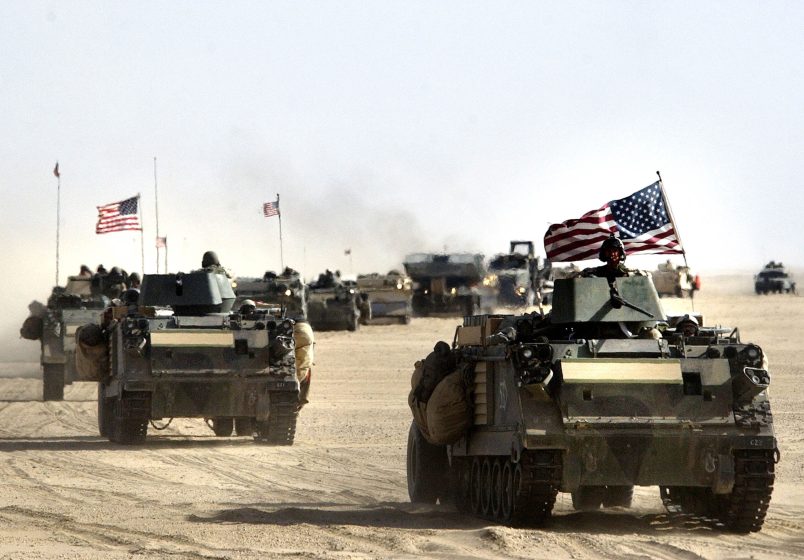As we consider the 20-year anniversary of the U.S. invasion of Iraq, I wanted to acquaint you with or remind you of some of the intellectual and emotional climate of the moment. This is separate from the reminders of the sheer deception that made the war possible. But it’s quite important. I’m linking two pieces I wrote at outside publications around that time — one for The New Yorker and another for The Washington Monthly. I covered much of the same ground at TPM, in these virtual pages. But because of the nature of this venue, the ideas and observations are more spread over various posts, often keyed to the immediate developments of the day, many short and momentary.
The first is this Jan. 25, 2004 piece in The New Yorker, Power Rangers. It’s a review essay of a number of recent books on the topic of American empire. As the subheader puts it, “Did the Bush Administration create a new American empire—or weaken the old one?” But the real topic of the piece and the one that stands out most clearly now is the unabashed embrace of a neo-imperial mission. Leftist critics had long denounced the post-war American empire and more mainstream foreign policy writers supported the softer hegemony of the “U.S.-backed global order.” But in 2002 and 2003 there was a rush of books and commentary arguing that the globe’s core problems were based on the U.S. being too sheepish in enforcing its global empire. Indeed, most of these books and articles were quite explicit in arguing that the British Empire — always the analog — had actually been a really good thing. Today — or rather twenty years ago — we could do it again, they argued, but finally get it right: do the empire thing but with the racism part removed from the equation. This building-block model of things actually made sense to many people — as always, a wild mixture of bad faith, hubris and naivete. “There’s general agreement that there was a mistake that the Brits made, which is that they allowed the imperial administrators to perpetuate a kind of snobbishness over the Western-oriented gentlemen,” one prominent neoconservative told me just before the start of the invasion. “We think these are the lessons we have learned. And that, therefore, imperialism as practiced this time will be different.”
The full throated version of this argument was coming from the right and center-right. But versions of it spread much deeper into the center of the political spectrum and even into the center-left.
Which brings me to another essay, this one a book review of Paul Berman’s Terror and Liberalism for The Washington Monthly. This was published in May 2003, but, due to the nature of publishing schedules, I think it was likely written in March of that year — so right as the invasion was happening. This book was widely discussed at the time and generally seen as an attempt to create a serious person’s ideological underpinning for the “War on Terror.” A quick and perhaps ungenerous synopsis of the piece is that intellectuals frequently take themselves and what they do a bit too seriously. More specifically, the whole concept was part of an effort to dress up the “War on Terror” with the seriousness, importance and the moral gravity of the struggle against fascism in the 1930s and 1940s and later the high Cold War of the 1950s and 1960s.
This is how I put it in the first two paragraphs of that review.
May you live, as the Chinese curse has it, in interesting times. For the last 18 months, we’ve all been living in “interesting times”—often frightfully so. Yet for intellectuals there is always a craving that times would be … well, just a little more interesting.
That’s been especially true for the last half century because a shadow has hung over political intellectuals in the English-speaking world, and in some respects throughout the West. It is the shadow of the ideological wars (and the blood-and-iron wars) that grew out of World War I—from communism, to fascism, appeasement, vital-center liberalism, and the rest of it. Even as these struggles congeal into history, their magnitude and seriousness hardly diminish. Understanding fascism, understanding that it could be neither accommodated nor appeased, understanding that Soviet communism was really rather like fascism—these were much more than examples of getting things right or of demonstrating intellectual courage and moral seriousness. These insights, decisions, and moments of action came to define those qualities.
Much of this seemed questionable at the time, 20 years ago. All the more so now. The 18 months after September 2001 was a weird, dangerous and vulnerable time. These pieces help me remember some of how unreal it was and some of its folly.






